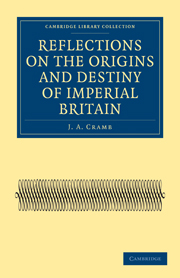LECTURE II - THE DEVELOPMENT OF THE POLITICAL IDEAL
Published online by Cambridge University Press: 07 September 2011
Summary
Man's path lies between the living and the dead, and History seems to move between two hemispheres that everywhere touch yet unite nowhere, the Past, shadowy, vast, illimitable, that at each moment ends, the Future not less shadowy, vast, illimitable, that at each moment begins. The question, “What is History?” is but the question, “What is Life?” transferred from the domain of the Present to the domain of the Past. To understand the whorl of a shell would require an intelligence that has grasped the universe, and for the knowledge of the history of an hour the æons of the fathomless past were not excessive as a preliminary study. Massillon's injunction, “Look thou within,” does but discover to our view in nerve-centres, in emotional or in instinctive tendencies, hieroglyphics graven by long vanished ancestral generations. But Nature, to guard man from despair, has fashioned him a contemporary of the remotest ages. The beam of light, however far into space it travel, yet remains unsevered from the orb whence it sprang, and Man, the youngest-born of Time, is yet one with the source whence he came. As age flies past after age, the immanence of the Divine grows more, not less insistent. Each moment indeed is rooted in the dateless past inextricably; but to its interpretation the soul comes, a wanderer from aeons not less distant, laden with the presaging memories, experiences, innumerable auxiliaries unseen, which the past itself has supplied for its own conquest or that of the present.
- Type
- Chapter
- Information
- Publisher: Cambridge University PressPrint publication year: 2010First published in: 1900



